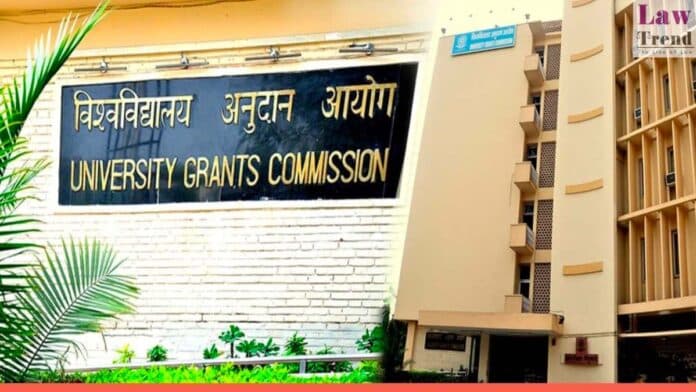The Supreme Court on Thursday asked the University Grants Commission (UGC) to specify steps it has taken and proposed to take, to provide non-discriminatory, enabling environment for the students belonging to Scheduled Castes and Schedule Tribes in institutions of higher learning, terming it a “very serious issue”.
A bench of Justices AS Bopanna and MM Sundresh asked the UGC to furnish the details of steps taken on a plea by the mothers of Rohith Vemula and Payal Tadvi, who had allegedly died by suicide following alleged caste-based discrimination in their educational institutions.
While Vemula, a dalit Ph.D scholar at Hyderabad Central University, had ended his life on January 17, 2016, Tadvi, a tribal student at TN Topiwala National Medical College, Mumbai, took the extreme step on May 22, 2019 due to alleged caste-based discrimination by three doctors of her institution.
“This is a very serious issue. Whatever concerns are raised… how do you propose to deal with it and what steps have you taken to address these grievances? This issue is non-adversarial and the UGC needs to take some concrete action. It is for the benefit of students and their parents. Steps taken would ensure that these types of incidents don’t happen in future,” the bench told the counsel appearing for the UGC.
Senior advocate Indira Jaising, appearing for the mothers of Vemula and Tadvi, said they have lost their son and daughter respectively, and in the past one year three more students studying at a National Law School, a medical college and Indian Institute of Technology, Bombay have taken their lives.
“Therefore, there is a sense of urgency about this petition. It would be appropriate that UGC formulates binding guidelines which can be followed by institutes of higher learning.
“It is unfortunate that the existing guidelines do not have a binding effect as they do not have any sanction for violation of the norms. There should be some regulations like Prevention of Sexual Harassment (PoSH) at Workplace Act and the anti-ragging law, which provides for punitive action in case of violation”, Jaising said.
She said equity regulations framed by the UGC in 2012 to address the complaints of caste discrimination on campuses are proving to be inadequate.
The counsel for UGC said the Commission is aware of the situation and has written to vice-chancellors of universities and college principals.
Justice Sundresh told the counsel that efforts needed to be made so the students from SC/ST communities are main-streamed.
“You need to ensure that there is no discrimination as some of them may drop out of the college/universities, if they don’t get along with other students. For this, some out of the box solutions are needed,” he said.
The bench then asked the UGC counsel to elicit suggestions from the petitioners and file a reply specifying the steps it has taken and proposed to take to create a non-discriminatory environment on campuses within four weeks.
On September 20, 2019, the top court had issued notice on the plea by the mothers of Vemula and Tadvi, seeking to end caste bias in universities and other higher education institutions across the country. It had sought responses from the Centre and the UGC on the petition.
The petitioners have sought enforcement of fundamental rights, particularly the right to equality, right to prohibition of discrimination against caste, and the right to life.
The petition has claimed rampant prevalence of caste-based discrimination in higher educational institutions throughout the country and said it reflects flagrant non-compliance with existing norms and regulations.
It has said these incidents are violative of the fundamental rights to equality, equal opportunity, right against discrimination, abolition of untouchability, and right to life guaranteed under Article 14, 15, 16, 17 and 21 of the Constitution.
Also Read
The petitioners have sought directions to the Centre and the UGC to strictly ensure enforcement of and compliance with the UGC (Promotion of Equity in Higher Educational Institutions) Regulations, 2012, popularly called ‘UGC equity regulations’.
They have also sought directions to the Centre and the UGC to ensure that all universities, including deemed universities and higher educational institutions, comply with UGC equity regulations in “letter and in spirit”.
The plea has sought court’s direction to ensure that all universities and Higher Education Institutions (HEI) establish Equal Opportunity Cells and such other anti-discrimination internal complaint mechanisms, and to include members from SC/ST communities and independent representatives from NGOs or social activists to ensure objectivity and impartiality in the process.
It has also sought direction to all universities to take strong disciplinary action against victimisation of students or staff who file complaints alleging caste-based discrimination, and to take necessary steps in the nature of interim reliefs that restrain the HEI from creating a hostile environment against students who file such complaints.
Besides these directions, the petition has sought various steps to ensure an end to caste-based discrimination on campuses.
“Since 2004, there have been over 20 documented instances of students committing suicides across the universities in the country. Various committees set up to look into these deaths have concluded that SC, ST students have faced systematic discrimination in matters of allotting supervisors, caste-based abuses, problems in matters of scholarships, and more,” the plea has said.




